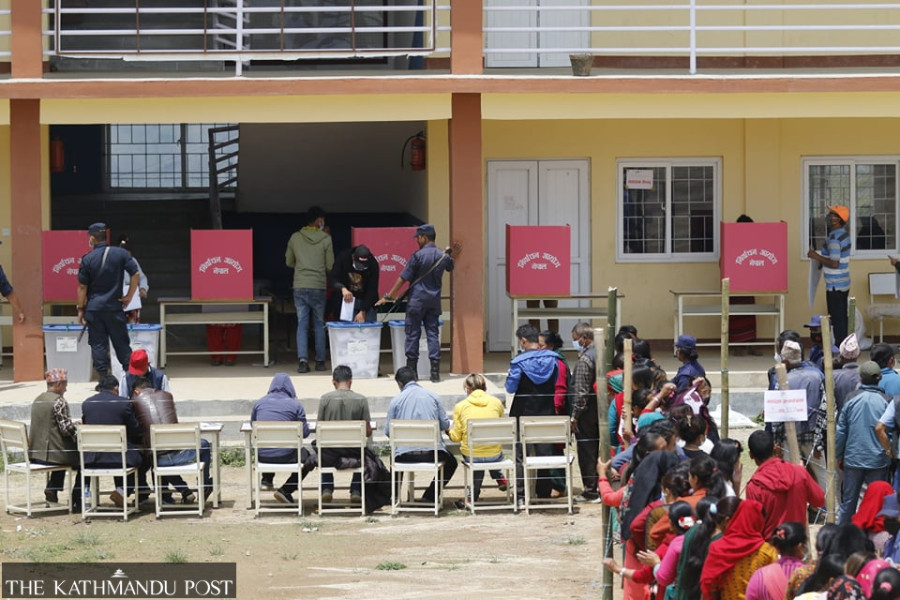Editorial
Disillusioned voters
The truth of the matter is that people are fed up with the antics of politicians.
With the local elections out of the way, an eerily calm atmosphere has enveloped the cities and towns. People left the cities in droves to exercise their franchise in the now-concluded local elections. The fact that Kathmandu Valley was deserted in the days preceding the polling, with people returning to their hometowns and villages, validates that Nepalis fervently believe in their right to choose their representatives. However, of the 17.3 million registered voters in the country, only 64 percent cast their ballots. This figure could move a few percentage points after the final tally. But it pales compared to the turnout during the previous election of 2017, which stood at 74.16 percent.
In a country with a disproportional disparity between the haves and the have nots, people take solace that for that one day, the election symbolises a sense of equality among the people. The rich and the poor, the influential and the insignificant, all queue up as equals and exercise an equal say in choosing their representatives. So why the drop in the voter turnout? While the political parties were busy mapping constituencies and strategising their return to power, they seem to have forgotten the purpose of holding the elections—a privilege bestowed by the people so that their needs will be looked after.
The last five years have been mired in political infighting. The party mandated to run the government sits in the opposition, while a motley alliance of five political parties share the spoils of power. The politicians deliberately squandered away the people’s expectations of good governance without a second thought. And despite all this, all that the people still hope for is change. In every election, Nepalis queue up to vote, come rain or shine, with the same fervour that, perhaps this time, their elected representative will think about the larger good of society.
One crucial factor that has discouraged people from voting in this election is the confusing patchwork of alliance politics. People see little sense in voting for a candidate who has been thrust upon them because of some self-serving calculation by the political parties. And it is perhaps for this reason that the mayoral race in Kathmandu, as per initial vote counts, shows a newcomer and independent candidate leading the pack. Whether or not this will culminate in victory for Balendra Shah, the truth of the matter is that people are fed up with the antics of politicians. The decline in the voter turnout is indicative of this fact.
Another blotch that appears due to alliance politics is the constant threats displayed by politicians at political rallies. While Pushpa Kamal Dahal warned of a crisis if the people didn’t vote for his daughter, Arzu Rana Deuba, Nepali Congress central committee member and wife of the incumbent prime minister, threatened that the government would not release funds if the candidates from her party failed to win. Such threats only vitiate the environment and allow for open defiance by the cadres. The political parties need to get their act together and let a truly democratic setup take root. It is for the politicians to realise that the interests of the people and the nation take precedence over their myopic agendas.




 8.79°C Kathmandu
8.79°C Kathmandu














